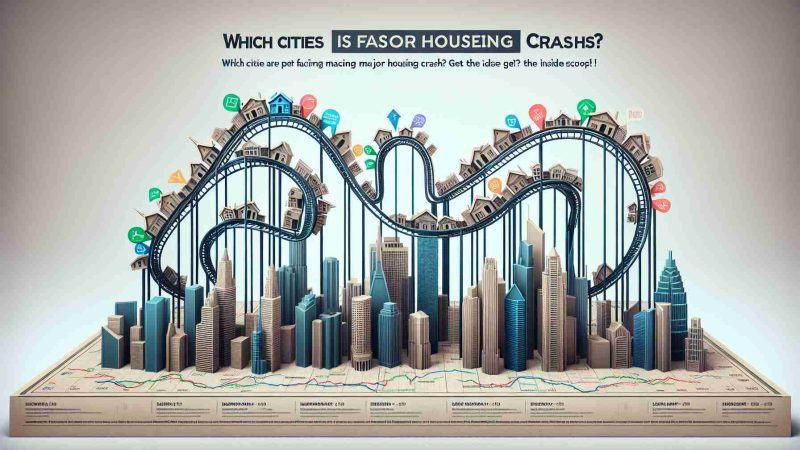Dubai’s Rooftop Revolution: Flying Cars on the Horizon?

Dubai is no stranger to ambitious projects, but its latest venture could redefine urban transport. With its impressive skyline set to become the backdrop for a futuristic transit evolution, Dubai is on the brink of introducing flying cars.
In collaboration with emerging tech companies, the city plans to harness cutting-edge aerospace and AI technologies to launch an innovative airborne vehicle system. These vehicles aim to alleviate traffic congestion and reduce carbon emissions in one of the world’s fastest-growing cities.
Dubai’s Roads and Transport Authority (RTA) has recently signed a memorandum of understanding with leading global aeronautics firms to explore the feasibility of a network of air corridors. This game-changing initiative proposes implementing a pilot program by 2025, making Dubai one of the first cities to integrate flying taxis into its public transportation system.
The project underscores Dubai’s commitment to positioning itself as a leader in technological innovation and sustainable development. By diversifying its transit options, the city aims to enhance the quality of life for its residents while attracting futurists and visionaries from around the globe.
Despite the excitement, challenges persist. Issues such as air traffic management, safety protocols, and economic viability must be meticulously addressed to ensure the successful implementation of this futuristic vision. However, if any city is equipped to conquer these hurdles, it is certainly Dubai. Watch this space as the city of tomorrow takes to the skies.
Why Dubai’s Flying Cars Are More Than Just a Futuristic Dream
In the ever-evolving landscape of urban transportation, Dubai once again leads the charge with its ambitious flying cars project, promising to redefine the way cities manage transit. As it steps into this cutting-edge domain, several key dimensions are emerging that could position Dubai as a pioneer of aerial urban mobility.
### Innovations in Flying Car Technology
The flying cars initiative in Dubai stands apart due to its reliance on the latest aerospace innovations and AI advancements. The envisioned Vehicle Vertical Take-Off and Landing (VTOL) technology offers rapid transit across long urban distances. These electric-powered flying cars are designed to ensure zero carbon emissions, emphasizing Dubai’s commitment to sustainability and reduced environmental impact.
### Key Features and Specifications
The flying cars are expected to travel at speeds of up to 300 km/h with a range of 150 kilometers per charge. They will be equipped with advanced navigation systems, allowing for autonomous and semi-autonomous flights through predefined air corridors. These corridors are designed to integrate seamlessly with existing air traffic management systems to ensure safety and efficiency.
### Use Cases: Revolutionizing Urban Transport
Not only aimed at individual commuters, but Dubai’s flying car project also seeks to integrate with public transport, reducing congestion on the roads. Potential use cases extend to emergency services, offering rapid medical interventions and disaster response, thus broadening the scope beyond conventional passenger transit.
### Economic Insights and Market Analysis
Dubai is strategically investing in the flying cars sector as part of its mission to diversify its economy. Analysts predict that urban air mobility could become a multi-billion dollar market by 2030, with Dubai anticipated to be a central hub. By attracting investments from global tech firms and creating a fertile ground for innovation, the city stands to gain both economically and technologically.
### Addressing Challenges and Safety Concerns
Despite the tremendous potential, hurdles such as regulatory frameworks, safety standards, and integration with existing urban infrastructure are significant. The Roads and Transport Authority (RTA) is engaging with global working groups to develop robust safety protocols and emergency response procedures to address these challenges head-on.
### Future Predictions and Global Inspiration
Dubai’s adoption of flying cars could serve as a blueprint for cities worldwide. With its ambitious plan set for a pilot program by 2025, success in Dubai might prompt other global cities to pursue similar ventures, further accelerating the transition toward futuristic urban mobility solutions.
### Conclusion
Dubai’s initiative to integrate flying cars into its transport ecosystem is not just an experiment; it’s a concrete step towards an innovative and sustainable future. As the city continues to navigate the challenges, the world watches closely, waiting to see how this bold vision unfolds.
For further updates on Dubai’s futuristic projects, visit the official site of Visit Dubai.





